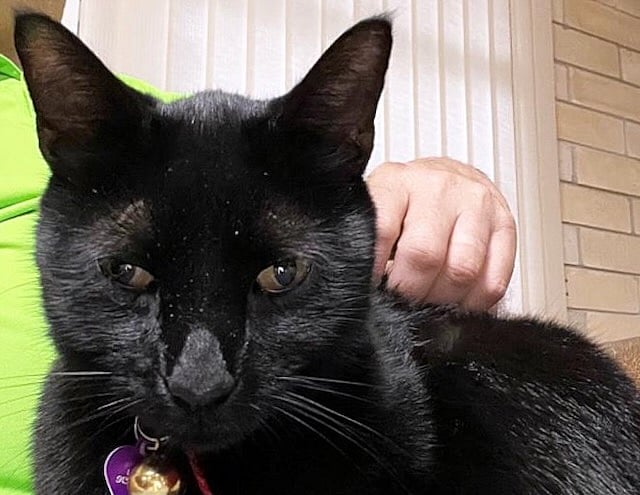Manténgase sano!

- Dennis Thompson
- Posted October 31, 2024
When This Black Cat Crossed His Path, It Was a Lucky Day for Medicine
When a black cat named Pepper dropped a dead mouse on the carpet at his owner's feet on a day back in May 2021, neither of them knew then that it would alert scientists to the arrival of an exotic virus to the United States.
Pepper is a skilled hunter who regularly leaves “gifts” for his humans, so that part wasn't surprising. But owner John Lednicky, a microbiologist with the University of Florida (UF) in Gainesville, did suspect the mouse might be carrying a virus called deer mulepox.
Instead, lab tests showed the mouse was harboring the first jeilongvirus to be discovered in the United States, researchers reported recently in the journal Pathogens.
Worse, it was a genetically mutated form of jeilongvirus, a type of virus previously detected in Africa, Asia, Europe and South America, Lednicky said.
“It grows equally well in rodent, human and nonhuman primate [monkey] cells, making it a great candidate for a spillover event” that could lead to a human epidemic or pandemic, Lednicky said in a university news release.
Jeilingoviruses infect mammals, reptiles, birds and fish, and can occasionally cause serious illness in humans, Lednicky explained. They are a type of paramyxovirus, which are associated with respiratory infections.
“We were not anticipating a virus of this sort, and the discovery reflects the realization that many viruses that we don’t know about circulate in animals that live in close proximity to humans. And indeed, were we to look, many more would be discovered,” said lead researcher Emily DeRuyter, a doctoral candidate in the UF Department of Environmental and Global Health.
The researchers have dubbed their discovery Gainesville rodent jeilong virus 1, and say that although it can infect many different species, there’s no need for panic.
That’s because most humans have little direct contact with the wild rats and mice that serve as jeilongviruses’ main hosts, the same as hantavirus.
“Humans can develop severe to fatal illness if they get infected by hantaviruses, but so far, those types of infections remain rare and typically occur only among people who come into contact with rodent waste, often through airborne exposure to rodent urine or fecal material,” DeRuyter said.
“Ideally, animal studies would be done to determine whether the virus causes illness in rodents and other small animals,” he said. “Eventually, we need to determine if it has affected humans in Gainesville and the rest of Florida.”
The researchers are sharing their info so that surveillance efforts might identify any jeilongvirus that might be circulating, Lednicky added.
And don’t worry about Pepper -- he developed no symptoms from his exposure to the mouse.
“Cats, in general, evolved to eat rodents, and are not sickened by the viruses carried by rodents,” Lednicky said, “but we have to do tests to see whether the virus affects pets, and humans.”
More information
The U.S. Centers for Disease Control and Prevention has more on viral surveillance in the United States.
SOURCE: University of Florida, news release, Oct. 29, 2024







